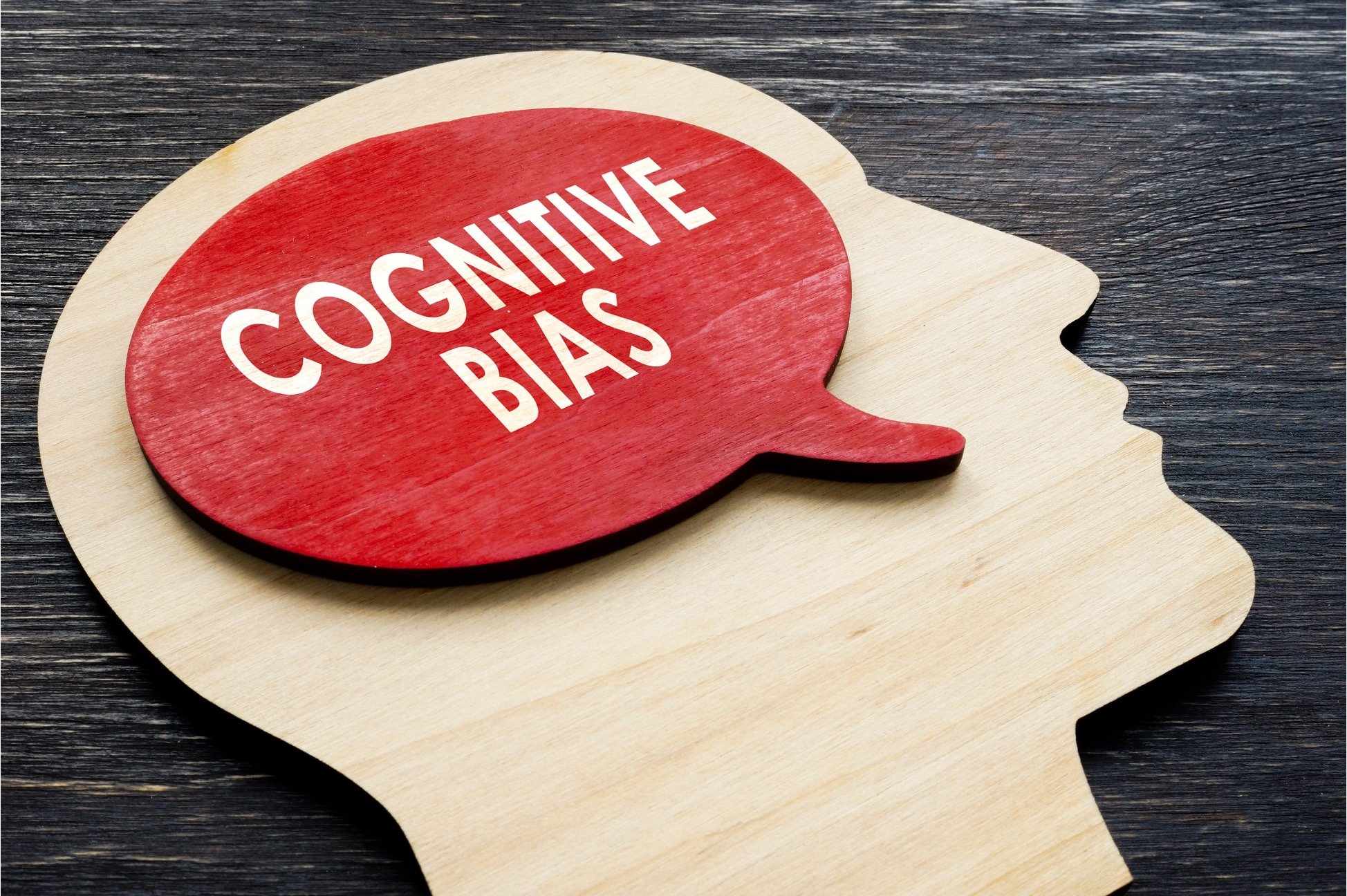Are you hearing only what you want to hear on social media?
Given the present uncertain climate, brands and organisations are trying to gauge, second guess and predict consumer behaviour. This is crucial too many. Making the wrong decision could spell an upturn in customer churn, a decline in customer trust and an uplift in your competitors outcomes.
Several clients have admitted recently that they are drowning in data, most of it is rear view and most of it yields more questions than answers which is not helping their consumer experience management.
I am going to pick one of these data streams and offer an opinion on why it might be adding to your woes. There has been a spike in attaching great importance to social media monitoring with brands thinking "it’s what the consumers are saying about the brand that predicts how we are doing".
There are tools that claim to measure 50+ million sources (including social media, blogs, forums and websites), in more than 75 languages over more than 180 countries every day. This all sounds pretty efficient and useful.
Where brands need to think very carefully how they spend their budget in terms of the best ROI, is this sudden over reliance on social media monitoring actually worth it? After all lots of brands are doing it and they are spending big money on it - so it must be useful right?
As consumer psychologists we would actually urge some caution in terms of how much worth social media gives you AND if it actually gives you any useful 'real' data as it is presently analysed. Let us have a look at social media through the lens of behavioural science and consumer psychology.
It surprises me when I ask clients to calculate a) what percentage of their audience actually actively post something about the brand and b) how does that percentage compare with all the other social media activity they engage in. It surprised me not because nearly every client I ask this question of actually ends up giving me quite a tiny number, but because when they realise it is quite a small number - they look surprised! So the first issue is - does social media monitoring actually represent what your target audience all do or does it just reflect a small portion of it 'who are active users'. So is it actually representative data? Or is it skewed, merely offering a lens on a limited section of your customers? What about all the others that do not engage with it? Are they satisfied with you? Pleased? Indifferent? Dissatisfied? The other issue is if I am only going to listen to the minority, then act on that minority - am I not going to further annoy the majority with what I do next as it doesn’t really represent how they are feeling? (as I don't know!).
Secondly we then get into the long grass of how social media activity is measured. There are the amount of 'likes' type metrics and then there are the semantic word screening algorithms. Both pose headaches for brands if analysed 'cold' so to speak. This is particularly true if you do not have the specific professionals to both translate and action the social media activity.
Social media metrics focus on the results of actions by a page/post. How many likes, follows, comments, etc page or post receives and the related impressions, reach, and follower demographics is used as a measure to track success.
The problem with this data is that it is like trying to choose a useful present for your partner based on only what you can observe. Watching what someone does or does not do is not a very reliable method of knowing why they have or haven't done something or even fully understanding what they like or don't like.
For example people 'like', 're-tweet', 'share' not actually because they REALLY like or engage with something but for a whole myriad of other deeper psychological reasons. Reasons that have little to do with what you carefully present to them from a brand point of view - but how they interpret that information.
There are many biases that shape our actions. We have a strong urge to manage our image, Social media engagers may want to fit in with society or not want to be left out. They may want to prove themselves popular by being the first person in their group to share something. They may want to show off. They may use social media to keep some form of control in terms of confirming what they think is relevant to them and what isn't - thus gaining reassurance that their decisions are correct. So rather than actually liking a product or a brand - they are simply using the social media interaction to manage their own ego's and social standing.
Just because we spend undue amounts of time on a page or clicking on certain parts of a brand output doesn't actually mean we are 'engaged with it'. One of the problems with eye tracking for example is that it has limited capacity to tell you why someone is looking longer at a certain part of an image. As humans we are have differential visual processing abilities. In plain english that means that each of us take different times to look and interpret visual information. Just because someone spends more time on a page - might actually mean they are taking longer to process it. It might mean they are taking longer to make sense of it or it might mean they do not like it and are trying to work out why.
The other weakness of monitoring social media and then basing brand actions on just what you see is that you might be making a huge interpretation or assumption of what it actually means.
Humans are terrible at understanding or describing why they did something. All of us have been midway through a sentence when a voice in our head starts shouting 'no, no, NO! why are you saying this right now? Stop'. We tend to post rationalise why we did or did not do something.
"I clicked like because I thought it was cute". Psychologically, translated might actually mean "I clicked like because I wanted to get some attention" or "I clicked like as it was the cutest thing I'd seen all day". Neither can be analysed to mean "I will buy it" or "I will engage with the brand again".
Just as when someone speaks to you - there is often hidden data and meaning beyond just the words they use or the behaviour you observe. Think of your partners. What they say is often NOT what the mean. Their smile does not necessarily mean you have done well and are in their good books. Their shouting doesn't actually mean you have done anything wrong and that they will immediately pack their bags and leave.
Social media can be useful IF you allow the right people to help you analyse it. Psychologists for example have trained for many years in relation to what people say and do and what it is they actually mean. They can add a whole different and impactful skill set in analysing all the data you are collecting.
So for example in relation to 'words', 'phrases' or 'semantics' we might screen our social media feeds to look out for (with some very sophisticated algorithm) we might get a heat map or word count of semantics - but just taking those phrases at face value is again risky. I might write in my social feed that I 'hate' my dentist as he had got an annoying laugh. Post comment someone is going to focus on that word 'hate' and label it as a strong negative sentiment. Uh oh alarm bells start to go off. If I look beyond my rather liberal use of the word 'hate' I might have caution to set those alarms off. Words are quite personal to each individual human - so when I 'like' something I actually mean I really like it. My colleague in comparison might write the word 'like' to mean it was ok/adequate. There is quite a big emotional difference between 'liking' and 'accepting something'. Now if I relay that back to hating my dentist - I might hate his laugh but I actually feel safe and secure and well cared for in his dentil abilities and outcomes. So while I might have typed quite a negative sentence - on the balance of things I love so much more about my dentist than I hate.
The other problem is that the human brain is wired specifically to give undue attention to negative information/experiences. This is linked to survival. Things that make us feel bad, at risk, unsafe, scared, unhappy - are actually threatening to us. Add that to the fact we are social creatures - we live in groups and as such benefit from and contribute to group safety. So humans tend to overshare negative information or at least perhaps try to make themselves 'valuable' by passing on potential threats to their peers. In terms of social media there is probably quite a part of it that is motivated by trying to be an asset to the group/community. Which probably means that many people can over exaggerate what they write on it - especially in terms of negative emotions.
Given the current situation the ability to surface reality from assumption can be invaluable to brands. Knowing which way to turn and what actions might do more harm than good for your customers is the ROI right now.
Adding the psychological capability to your existing data/skill sets can massively impact your strategic outcomes.
For example we worked with a global online gaming company. All the social media activity analysis they thought was about excitement. Their PR, branding and marketing went into overdrive about how exciting they and playing these games were. They proceeded to loose 9% of their market share. Our psychologists then worked alongside their social media analysts. Using our training we deduced that actually the social media activity hinted at 'control'. When we worked with the brand about how they frame their digital communications to 'enable' greater perception of control to the customer base. As a direct consequence of that psychological reframe their market share rose by 17%.
We also helped a global retail brand better understand how to increase its NPS via psychological analysis of its customers social media engagement. Again, they had taken the social media outputs at face value, misinterpreted what was actually behind the messages and activity and subsequently saw their sales and NPS drop drastically (as they were working against interpreted assumptions). We supported the analysis adding a psychological lens to the data. The psychological analysis revealed hidden factors impacting customer experience - which we helped the client remove and reframe. Sales increased by 12% and they recorded the best NPS score they had ever achieved!
So while social media monitoring might be useful to your brand - you need to ensure you have the right personnel or support to ensure that you are not misinterpreting it. Given the fact that most budget holders are facing budget restrictions but have more issues to 'fix' there is even more demand to ensure your work is actually tackling the real core of the problem. After all you want ROI on the money you invest and not customer irritation/churn - right?




